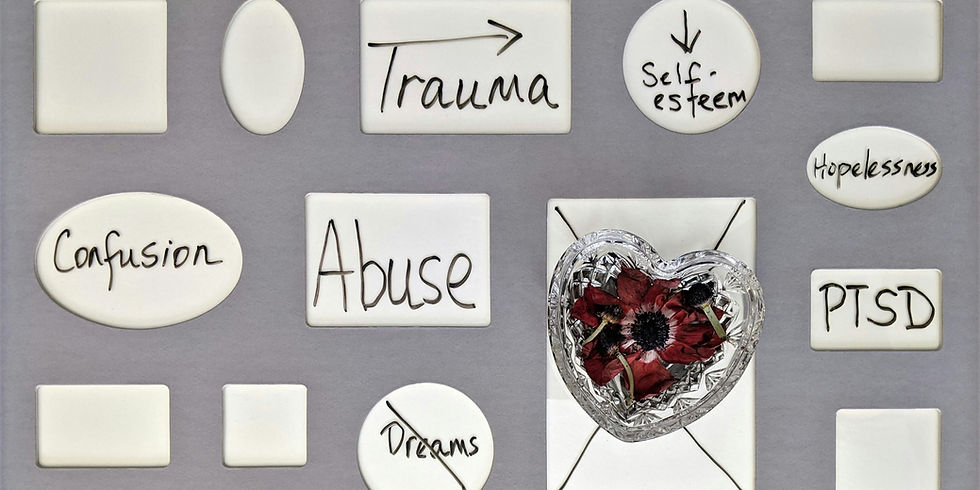Healing Childhood Patterns Passed Down Through Culture
- Yourdeline Sertyl
- Nov 19, 2025
- 3 min read
Many of us carry ways of thinking, feeling, or reacting that don’t fully serve us. These habits often feel automatic, and we might not realize they were shaped by cultural expectations, family traditions, or unspoken rules. If this feels familiar, you’re not alone.
Why This Happens
Patterns Start in ChildhoodFrom a young age, we absorb messages from our family and culture. This could be about how to manage emotions, what success looks like, or how to interact with others. For Caribbean families, for example, there may be strong expectations to be resilient, to avoid complaining, or to put family needs first. While these lessons are often rooted in love, they can create pressure, guilt, or shame when applied rigidly in adult life.
Cultural Expectations and Family Roles
Cultural norms shape how children learn to behave. In many families, showing vulnerability might have been discouraged, emotions may have been minimized, or certain behaviors were rewarded while others were criticized. Over time, these patterns become automatic ways of thinking and coping, even when they no longer fit your life.
How It Impacts Daily Life
Relationships and BoundariesThese inherited patterns can make relationships challenging. You might find it difficult to say no, speak up for yourself, or express feelings openly. You may notice a cycle of overgiving, people-pleasing, or feeling responsible for everyone’s happiness.
Emotional Struggles
Patterns from childhood can also fuel anxiety, guilt, or low self-worth. You might feel a constant pressure to do it right or fear disappointing others. These responses often feel personal, but they’re actually echoes of learned cultural and family expectations.
Work and Daily Functioning
Even at work, these patterns show up. You may overcommit, hesitate to ask for help, or avoid conflict, believing this keeps you safe or liked. While these habits may have helped you navigate childhood, they can limit your freedom and joy now.
What You Can Do About It
Notice and Name the Patterns
The first step is awareness. Journaling, self-reflection, or discussing your experiences with a therapist can help you identify which behaviors are inherited patterns versus your own authentic choices.
Practice Self-Compassion
Remember, these patterns developed for a reason. Instead of judging yourself, approach your habits with curiosity and kindness. Recognize the effort it took to survive and thrive within your family and cultural context.
Set Healthy Boundaries
Boundaries are a form of self-care. Start small: saying no to one thing that feels overwhelming, asking for help when needed, or expressing your feelings in safe spaces. Over time, setting boundaries becomes easier and more natural.
Experiment with New Responses
Try out new ways of reacting, even in small moments. If your pattern is overgiving, practice pausing before saying yes. If you tend to hide emotions, share a small feeling with a trusted friend or therapist. Each small step rewires the automatic responses your brain learned in childhood.
When Therapy Can Help
Working with a trauma therapist or anxiety therapist can make this process smoother. Therapy offers a safe space to explore these patterns without judgment. A Boston therapist, for example, can help you understand how cultural and familial messages shaped your life and guide you in developing new, healthier ways of being. Therapy is not about blaming your family or culture. It’s about reclaiming your sense of self and learning skills to navigate life more freely.
What to Expect in Your First Session
Your first session is about you. You’ll share your experiences, struggles, and goals. A therapist will listen, normalize your feelings, and help you identify patterns that may be influencing your life today. You won’t be rushed. This is a judgment-free space to begin understanding yourself and exploring what change could look like.
Ready to take the first step? Click here https://calendly.com/safespaceboston-info/initial-call to schedule a free consultation with Safe Space Counseling today.





Comments